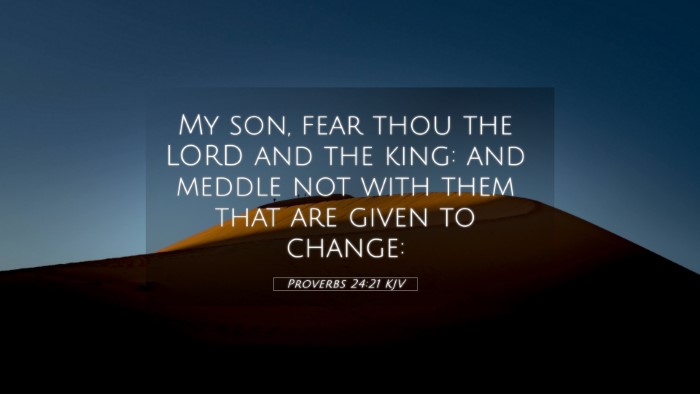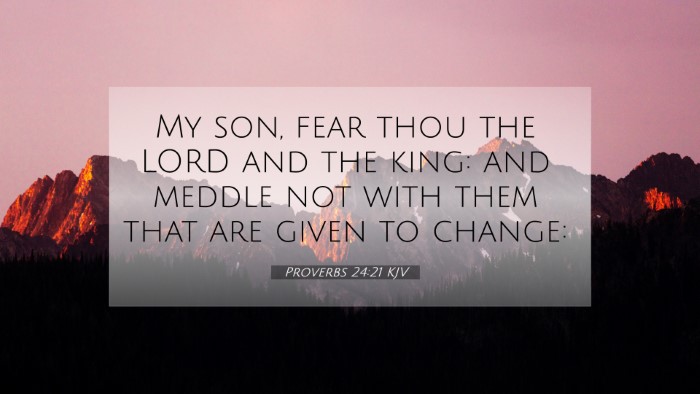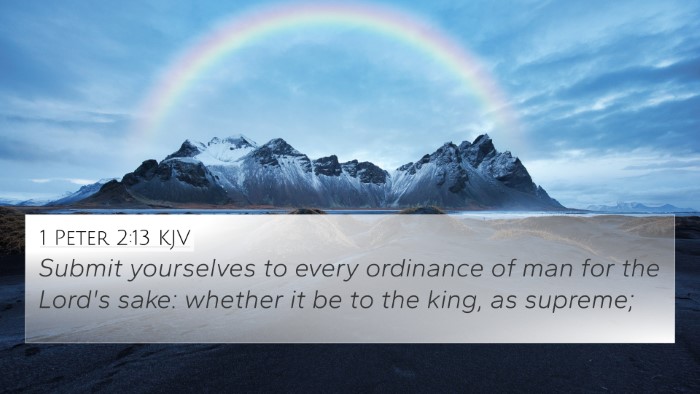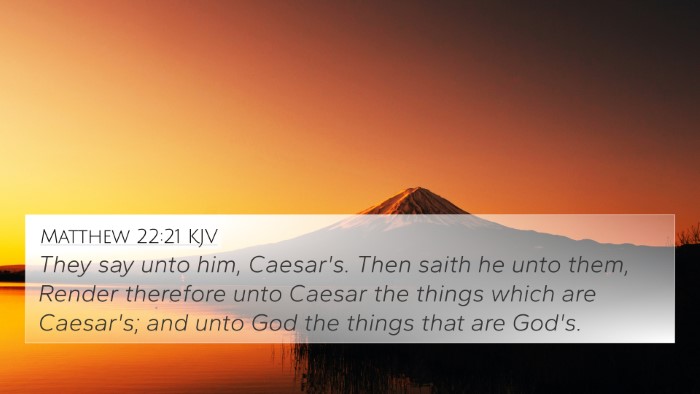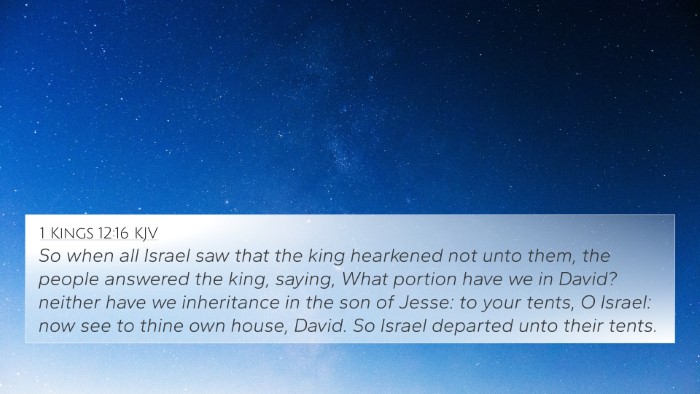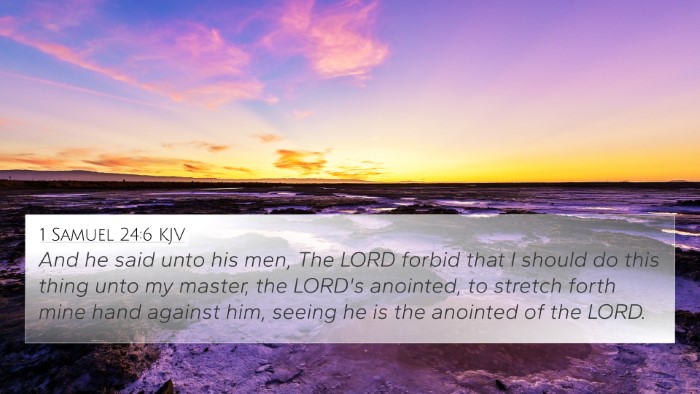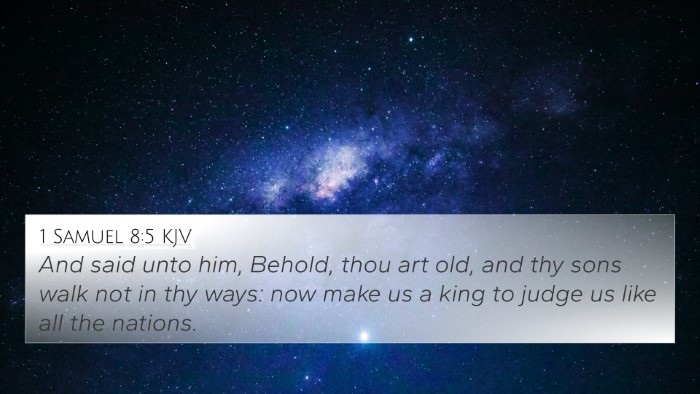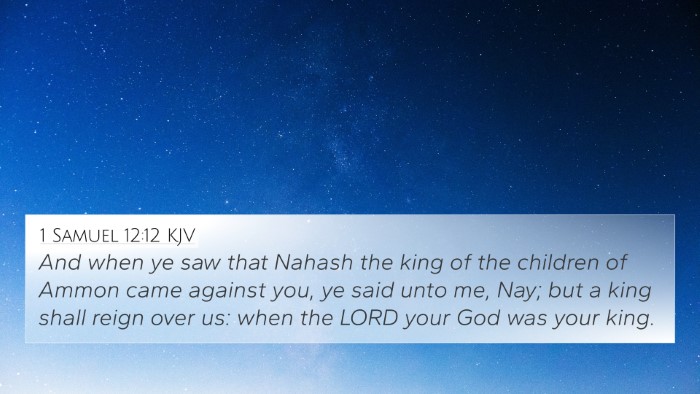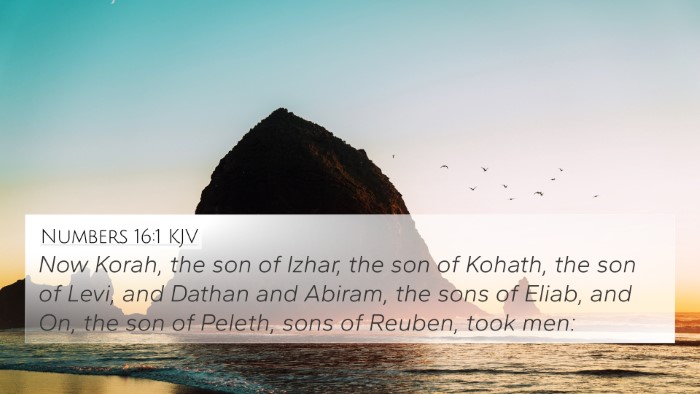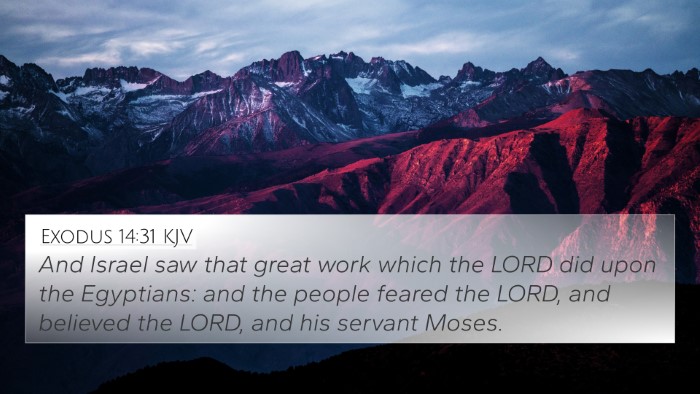Understanding Proverbs 24:21
Proverbs 24:21 states:
"My son, fear thou the LORD and the king: and meddle not with them that are given to change."
This verse encapsulates a profound principle regarding authority and the importance of reverence to both God and earthly leaders. Below is a comprehensive analysis, combining insights from the commentaries of Matthew Henry, Albert Barnes, and Adam Clarke.
Verse Meaning and Interpretation
In this verse, Solomon instructs his son on two crucial relationships: the relationship with God (the LORD) and the respectful acknowledgment of governing authorities (the king). The admonition against associating with those who are "given to change" highlights the dangers of instability and rebellion against established order.
Key Insights
- Fear of the LORD: A central theme is the fear of the Lord, which denotes reverence, respect, and a deep acknowledgment of God's supreme authority over all. Matthew Henry notes that a healthy fear of God guides one’s actions and decisions.
- The Role of Authority: The king symbolizes earthly authority. Albert Barnes emphasizes that submitting to authority is essential for social harmony and personal peace.
- Stability vs. Change: The warning against those “given to change” signifies the societal impact of those who promote unrest and rebellion. Adam Clarke highlights that wisdom lies in preserving the stability of sound principles against the whims of the restive.
Cross-References
This verse finds resonance with several other scriptures, illustrating the thematic connections within the Bible:
- Romans 13:1-2: Discusses the necessity of submitting to governing authorities as ordained by God.
- Proverbs 1:7: Emphasizes that "the fear of the LORD is the beginning of knowledge."
- 1 Peter 2:13-14: Encourages submission to every human authority for the Lord's sake.
- Ecclesiastes 8:2-5: Advises on honoring the king and adhering to his commands.
- Proverbs 29:26: Highlights that many seek the ruler's favor, but justice comes from the Lord.
- Titus 3:1: Stresses that believers should be subject to rulers and authorities, obeying and being ready for every good deed.
- Luke 20:25: Jesus speaks on giving to Caesar what is Caesar's and to God what is God's, affirming the balance of loyalty between divine and earthly authorities.
Thematic Bible Verse Connections
The overarching theme of respect for authority and the fear of God interlaces the spiritual and societal fabric of human conduct:
- This thematic emphasis aligns with Hebrews 13:17, which urges believers to obey their leaders and submit to authority for their spiritual well-being.
- The echoes of reverence are also found in Psalm 118:6, where the psalmist states that the Lord is on his side, reflecting confidence in the divine over the anxiety of human authority.
- Furthermore, Matthew 22:21 intersects with the theme of earthly authority, reflecting the inherent duty of citizens.
Tools for Bible Cross-Referencing
Utilizing tools for Bible cross-referencing can enhance understanding:
- Bible Concordance: Helps in locating verses and their meanings through keywords.
- Bible Cross-Reference Guide: Provides a systematic approach to linking related scriptures.
- Cross-Reference Bible Study: Facilitates comprehensive thematic studies through interconnected verses.
Conclusion
Proverbs 24:21 invites believers to uphold a respectful relationship with both God and earthly leaders, grounded in the fear of the LORD and the pursuit of stability in society. The connections between this verse and others serve as a rich tapestry of biblical wisdom, reinforcing the importance of reverence and submission within the divine and societal hierarchy. Through careful cross-referencing, one can glean deeper insights into the complexities of faith and authority.
As we explore the intricacies of biblical texts, understanding the connections between verses enhances our spiritual and moral framework, illustrating that the words of the scripture are profoundly interwoven.

